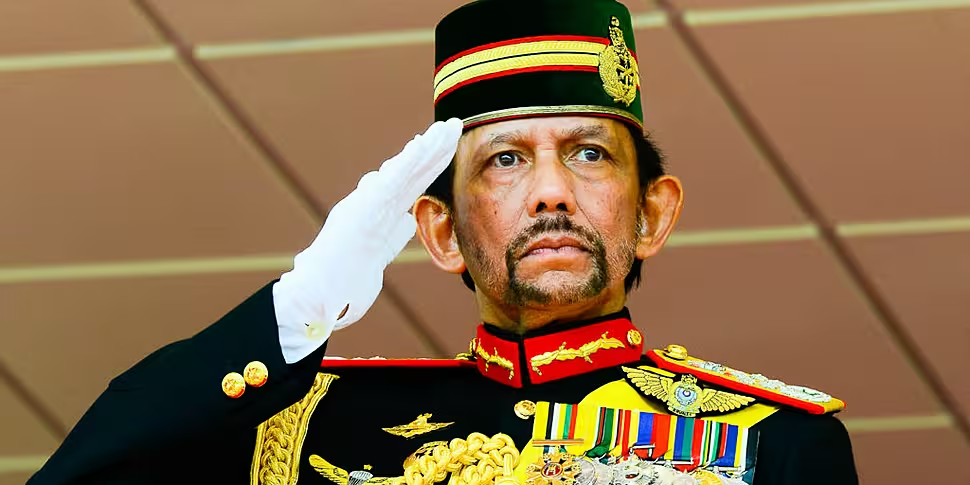Ireland has updated its travel advice for Brunei in light of the country's "very severe" new laws.
Updates to the penal code, which went into effect on April 3rd, introduced punishments such as death by stoning for extramarital sex, gay sex and abortion.
Other punishments include amputation of limbs for stealing and lashes with a whip for lesbian sex.
On their website, the Department of Foreign affairs says Irish citizens travelling to the country should take 'normal precautions'.
However, the advice now adds: "We strongly recommend that Irish citizens familiarise themselves with and observe local law and customs before visiting Brunei, including shariah/syariah/sharia law.
"Most laws under Common Law and the Sharia Criminal Code apply to all people in Brunei, regardless of nationality or religion and penalties can be very severe (including the death penalty)."
International opposition to Brunei's laws have been mounting in recent weeks over what Human Rights Watch has described as a "multifaceted assault on human dignity".
Amnesty International has called on the small nation to "refrain from implementing these laws, and must take necessary steps to repeal this unacceptable legislation".
Boycott
US actor George Clooney has led the calls for a boycott of nine luxury hotels owned by the state-owned Brunei Investment Agency - including London's Dorchester hotel.
Deutsche Bank is among the companies to have stopped employees from staying in the Dorchester Collection hotels.
The banking firm removed the hotels from its suppliers list, explaining: "The new laws introduced by Brunei breach the most basic human rights, and we believe it is our duty as a firm to take action against them."
Amid the growing backlash, the hotel chain itself said: "We understand people's anger and frustration but this is a political and religious issue that we don't believe should be played out in our hotels and amongst our 3,630 employees."
Brunei is located on the island of on the island of Borneo, and has an estimated population of less than 500,000 people.
It became a wealthy economy following the discovery of oil in the early 20th century.









